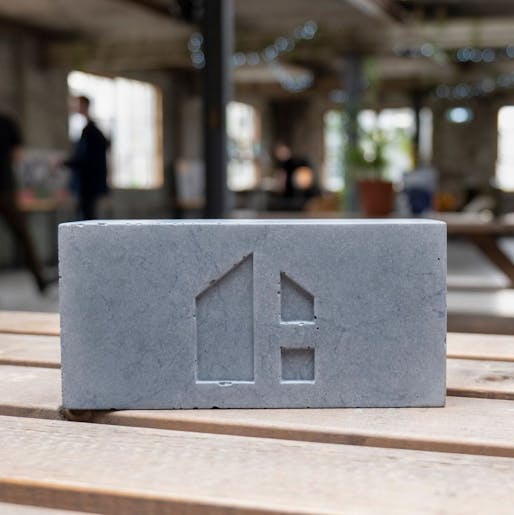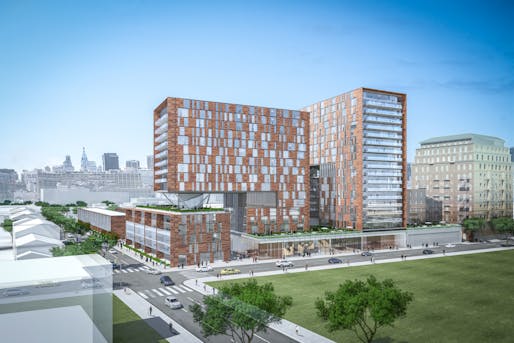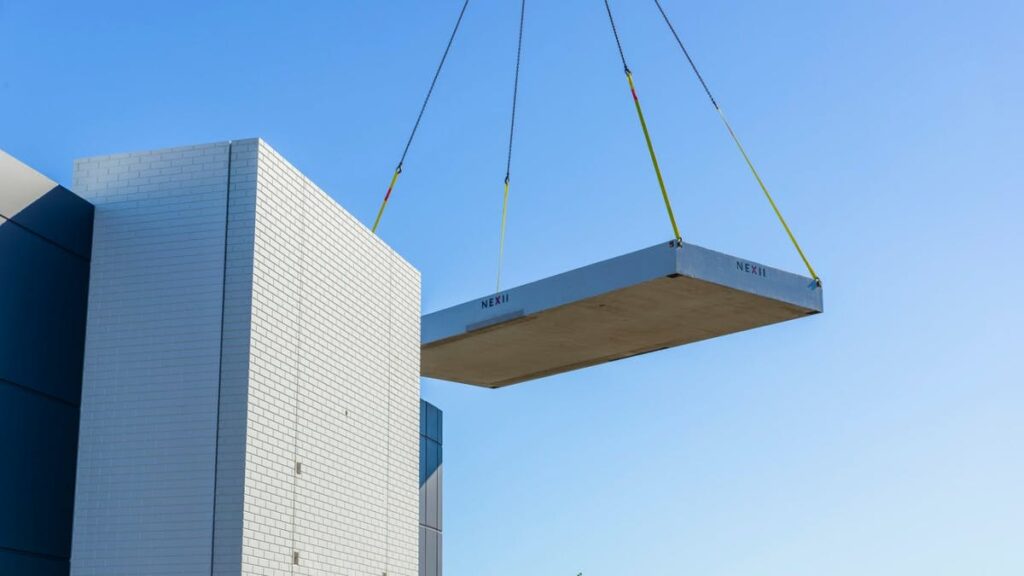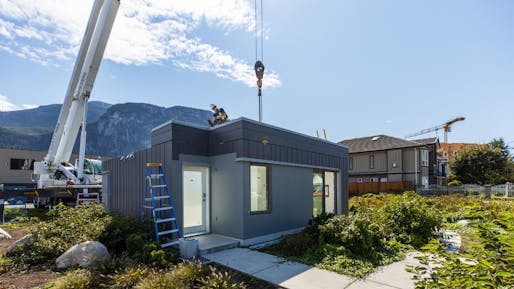One year after the failure of the ambitious construction startup Katerra, Another construction technology company is seeking to pick up the mantle as a leader in sustainable, modular, prefabricated construction.
Based in Vancouver, Nexii Building Solutions has been described by The New York Times as “a rising star in the expanding green building industry,” adding a patented modular system with a reliance on 3D modeling software and third-party verification of its sustainability metrics.
Founded by entrepreneur Stephen Sidwell in late 2018, Nxii became the fastest company in Canadian history to reach a valuation of more than $1 billion, doing so in 31 months. Having recently completed its seventh round of funding, the startup has raised more than 200 million Canadian dollars, or 155 million US dollars.
As described in a recent feature in the TimesNexii’s patented building system involves the mass production of prefabricated Panels for use in walls, floors, and roofs in an off-site factory, followed by rapid on-site assembly. Besides software, the company relies on augmented reality to review project assembly prior to physical construction.
“In the past, construction firms would build a mini model or build directly from paper plans, and would deal with problems or mistakes that arose as they built,” Nexi’s executive vice president Gregor Robertson told the Times. “So we use augmented reality to walk through a whole building on a screen and look at every tiny detail to make sure everything fits together very precisely.”
Nexii’s panels are comprised of an in-house concrete alternative called Nexiite, which the company claims can lower carbon emissions by 20-36 percent compared to Portland cement concrete. Meanwhile, Nexii has formed strategic partnerships with third-party companies to supply their shell with building control, HVAC, and energy systems as well as electric vehicle charging.

As the company scales beyond its current two Canadian manufacturing plants, operated by 400 employees, it plans to franchise its building panel process to local manufacturers who will market and sell Nexii building products in their regions. The local manufacturers would pay a licensing fee to the company and a percentage of revenue from product sales.

Nexii is one of several disruptor companies recently emerging to respond to construction-related problems, from housing affordability to carbon emissions. In April, Houston-based Rugged Robotics secured $9.4 million in funding to develop a machine that automates construction.
In December 2021, Bjarke Ingels unveiled details of his Nabr disruptor housing company, while a startup design-building architecture firm raised almost $600K in crowdfunding to revolutionize the architect-client relationship.


